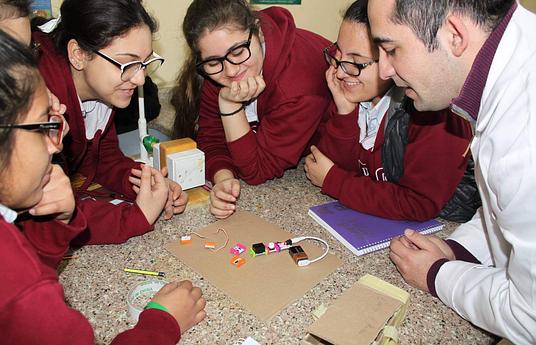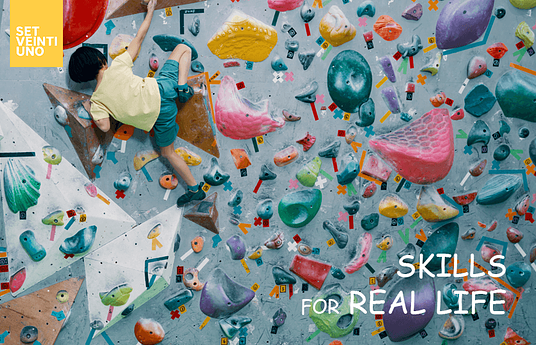Class 8 is seen as a major staging point for Steiner students. It is the end of the class teacher period and students are preparing themselves for the next phase of their schooling. There is a major change from having a class teacher to now having subjects taken by specialists, experts in their area. Attention is rightly given to the importance of working together to achieve common outcomes, (eg class or team projects), while the emphasis for individual learning is often seen as pursuing the student's own abilities in a given direction in the academic, artistic or practical realms. This of course happens, but now, in addition with this project, the students are asked to think about what matters to them as individuals and choose something of interest that they can explore in the way they would as adult learners. Adult learning is where someone identifies a subject to focus on, a teacher who can help them learn the necessary skills and a process with an endpoint during which the exploration takes place. In class 8 the expert is called a mentor, and each student needs to find one once they have settled on a subject. In many ways the Project is an entry into the upper high school. Students keep a journal and record their processes, both the practical ones and the inner challenges. They reflect on their journeys and give a summation on the night of their presentations. They speak the story of their year’s work. They talk of the highs and lows, the challenges and achievements. Things like maintaining motivation, or working out how to stay organised can have a profound impact on the students. Having a mentor move to another state can derail a project and force a major rethink, again a painful but useful experience. Thinking of what they could have done differently can be a very useful process. They reflect on what they have learned along the way and come to see that they can meet difficulties and overcome them. These are real life lessons and they can be very liberating and empowering for students. They realise they have strengths that may have been hidden up until now. They learn to value expertise and the way it is acquired over time and with practice.The projects are a fitting endpoint to the early years and a look ahead to a future that is partly of their own creation. They allow for a glimpse into a productive adult life, and begin the development of the skills needed to get there.Sophia Mundi has been offering the Class 8 project since 1992 and some recent examples include the making of a Gibson SGguitar from a piece of blackwood, the writing of a 30,000 word novel, song writing, performance and video making, the study and practice of husbandry, designing and making a couture evening gown, robot making, building a 4m long wooden rowing boat and oars, creating and marketing a skincare range, and constructing a forge. Students present their journey and the project to the school community at the beginning of term 4. These presentations show how students are able to concentrate and work at things for longer than they have before; that they can become independent learners; that they can find value and relevance in their learning, especially when it is consistent with personal interests and goals; and it asks of them to explore themselves and the world around them to help them find their own voice.
Sophia Mundi Steiner School Class 8 Project
Transforming the Self, Awakening the Will
Overview
Information on this page is provided by the innovator and has not been evaluated by HundrED.
1992
1
About the innovation
Media
Implementation steps
You have decided to adopt the Year 8 Project in your school. The first step is to inspire your current Year 7 students. Ask them to think about what excites them, what are their passions and interests - it could be astronomy, art, computers, chemistry, food, fashion, music, machines, woodwork, writing....the possibilities are endless. Ask them to think about how their passion can be explored in a project of three terms long.
Dedicate teacher(s) to oversee the Project. The project teacher(s) meets with the Year 8 studentsweekly to review project progress, help overcome obstacles, help students to reflect on and understand whatthey are doing, to practice presentation skills and to review students’ journals.
TheYear 8 Project ends with a presentation in the first week of term 4 of each student’s project and the journey taken to get them to the end of their project. Allow the school community to be part of this journey, to acknowledge and celebrate the achievements of each year 8 cohort - achievements which are empowering in so many different ways for every year 8 student – and inspire the students in the younger years to see what is ahead of them.
Similar innovations


